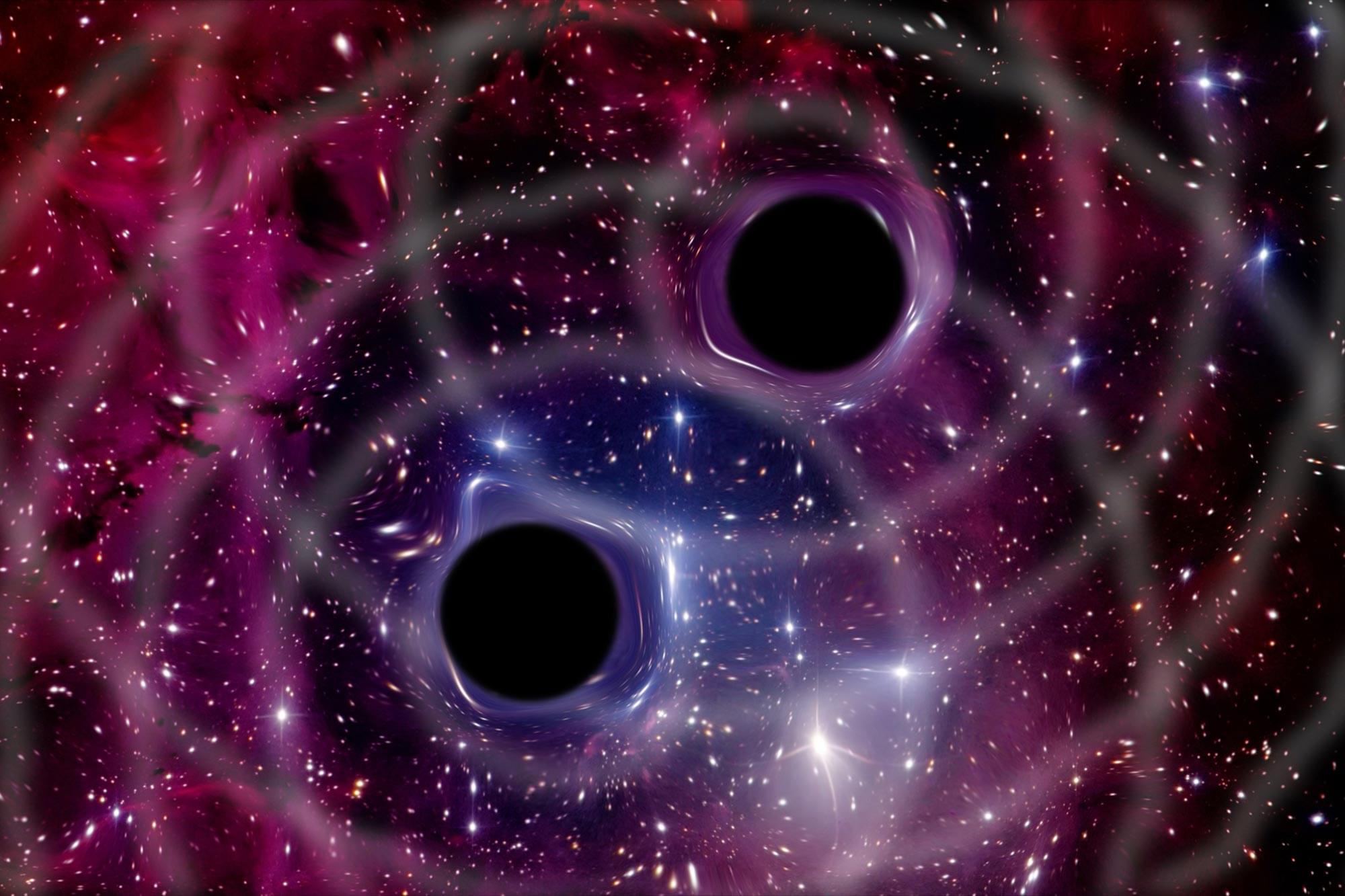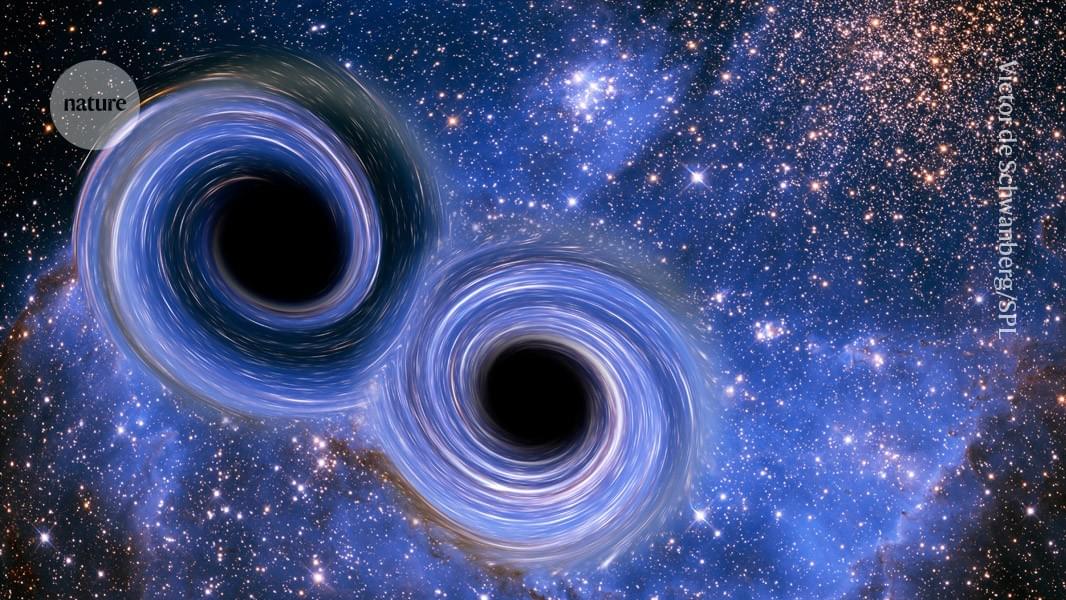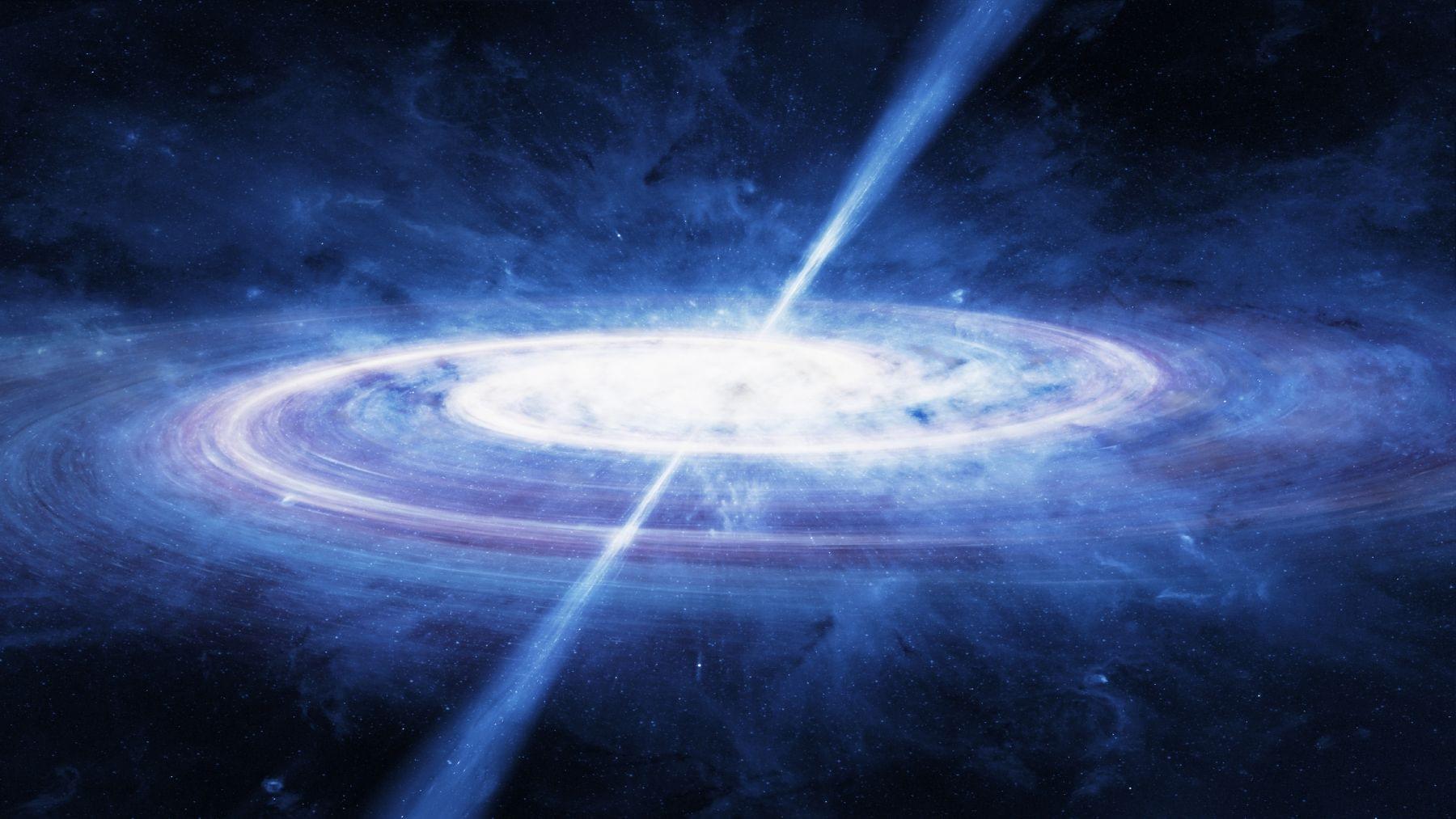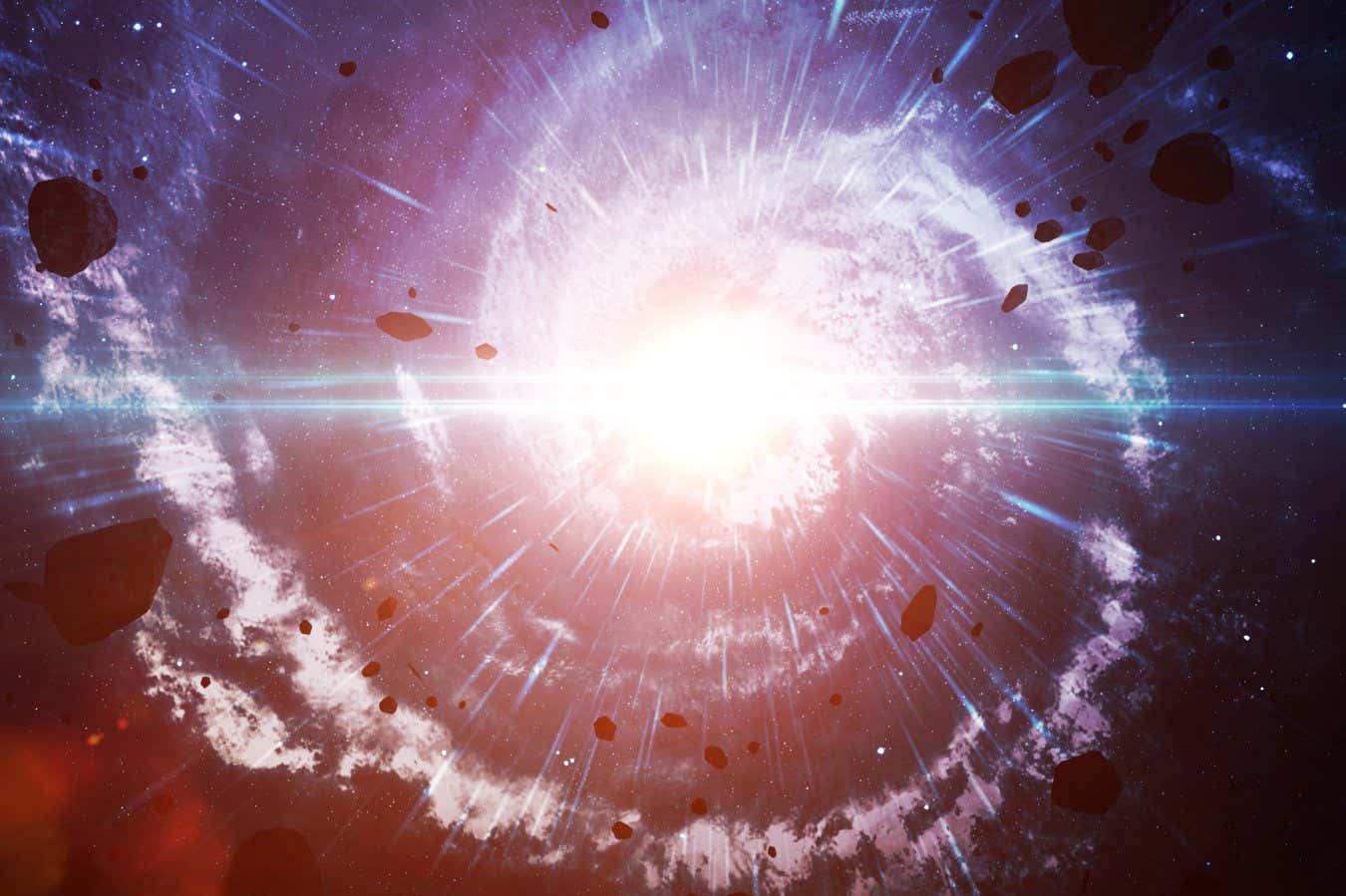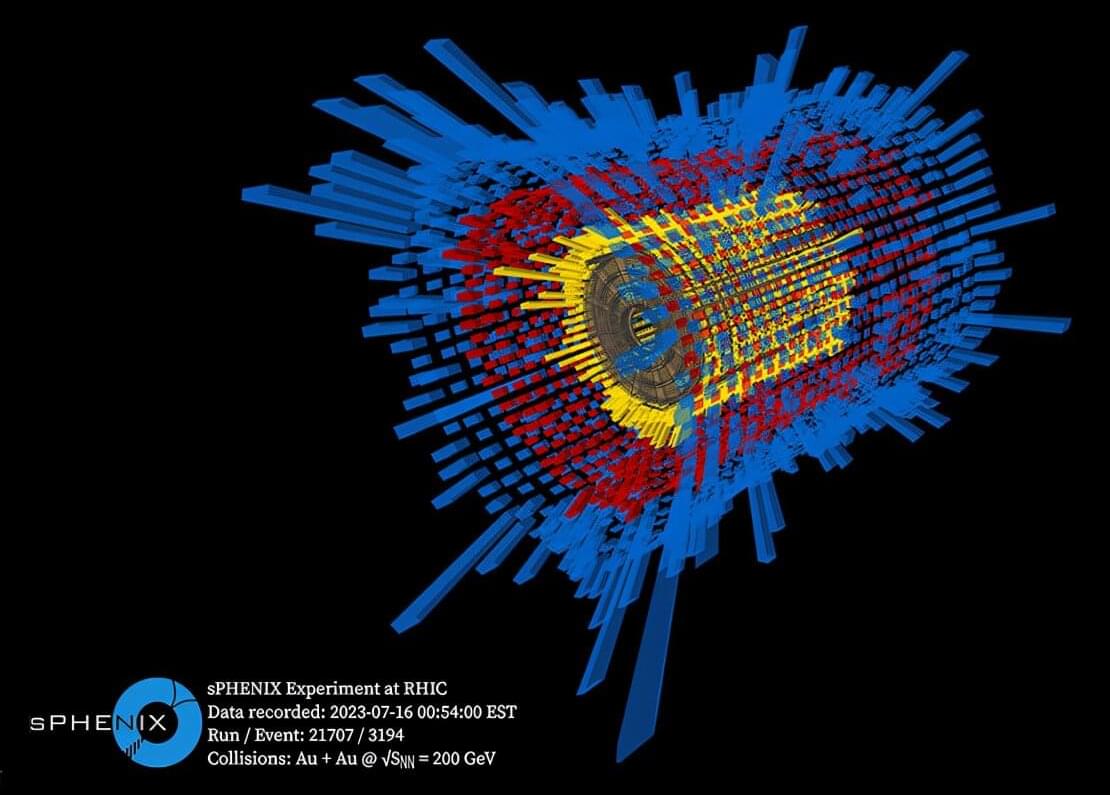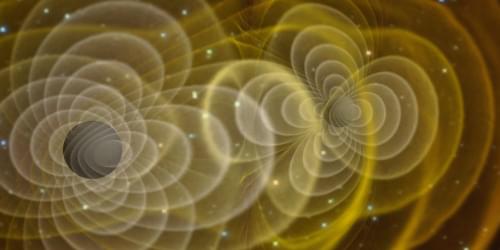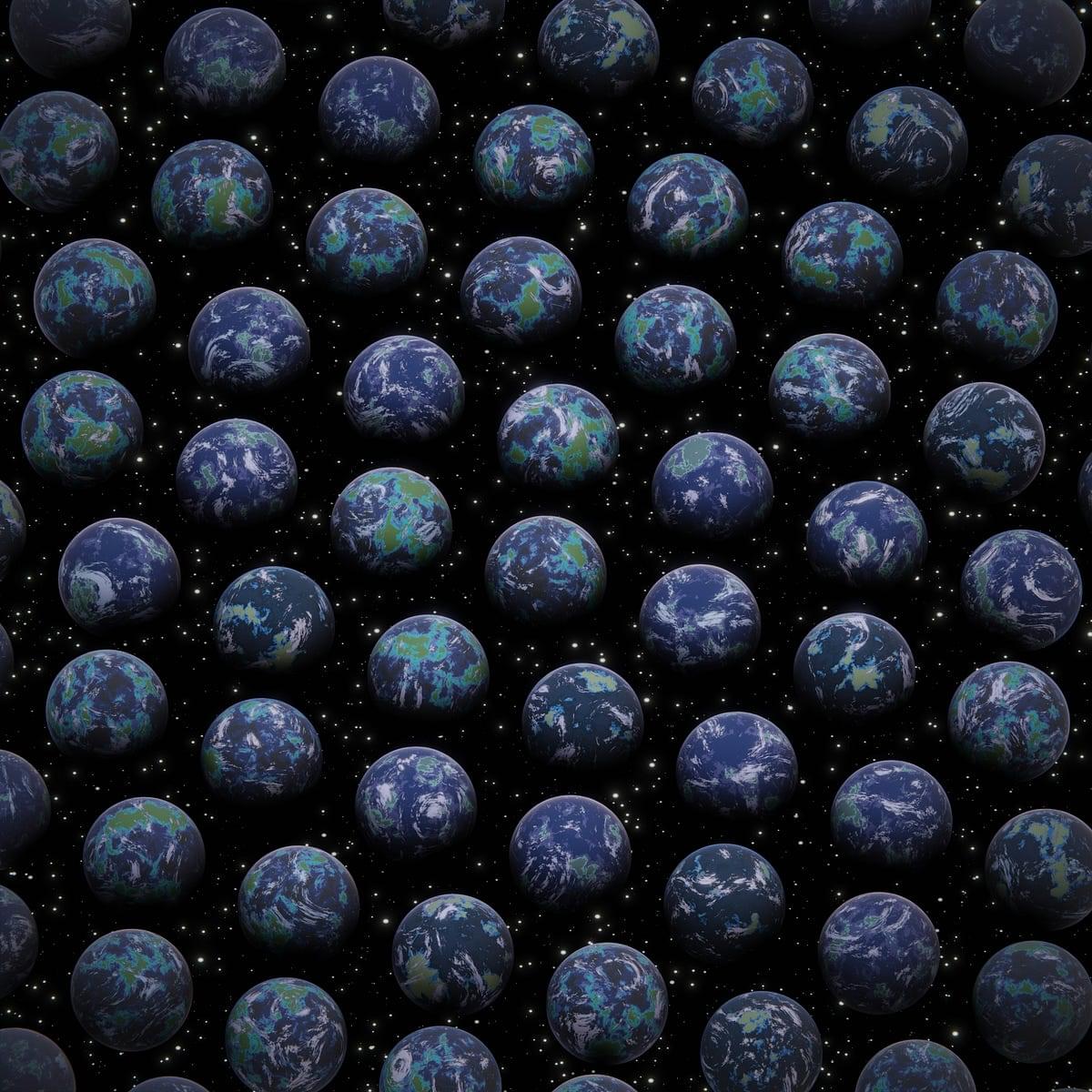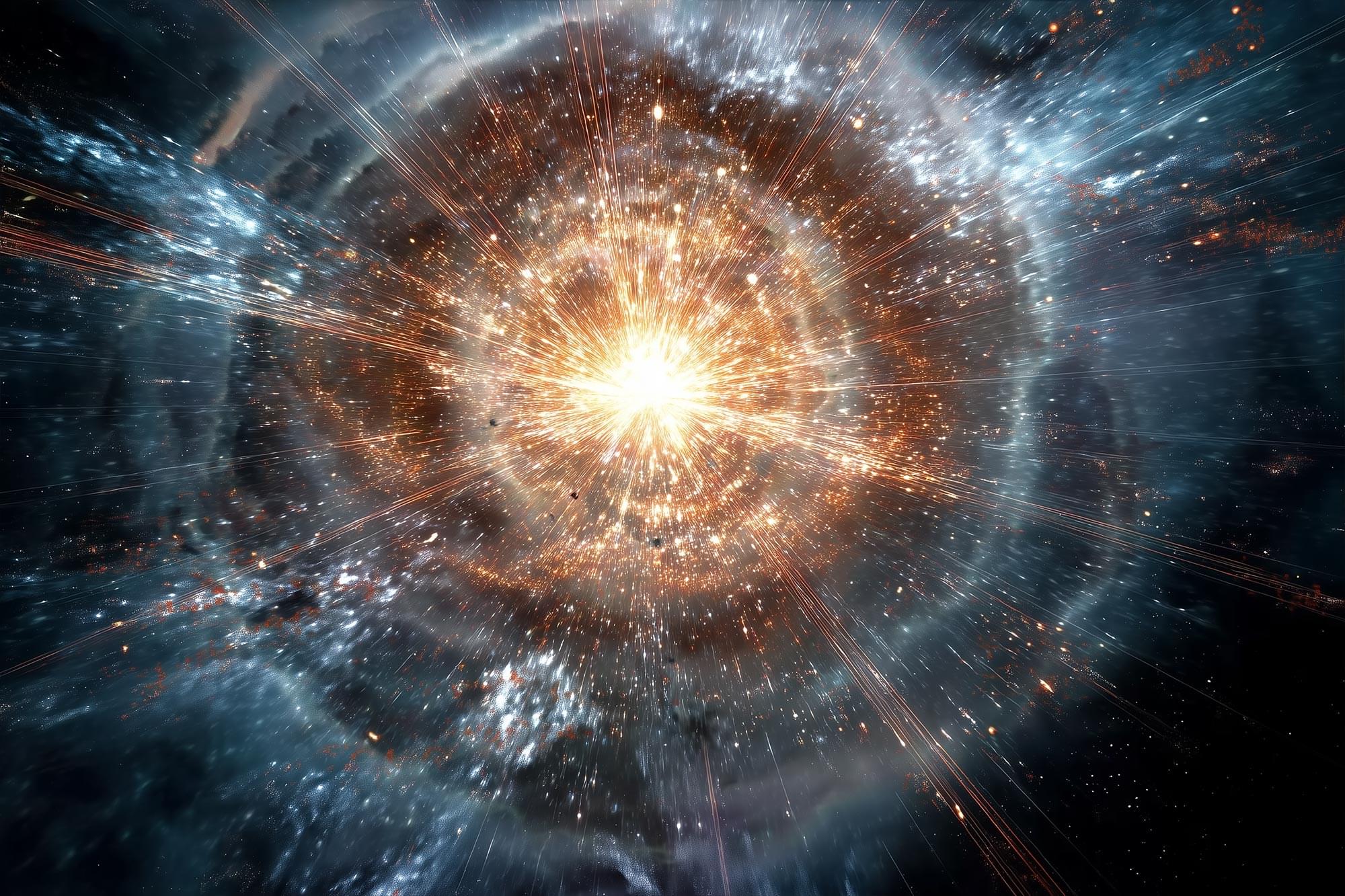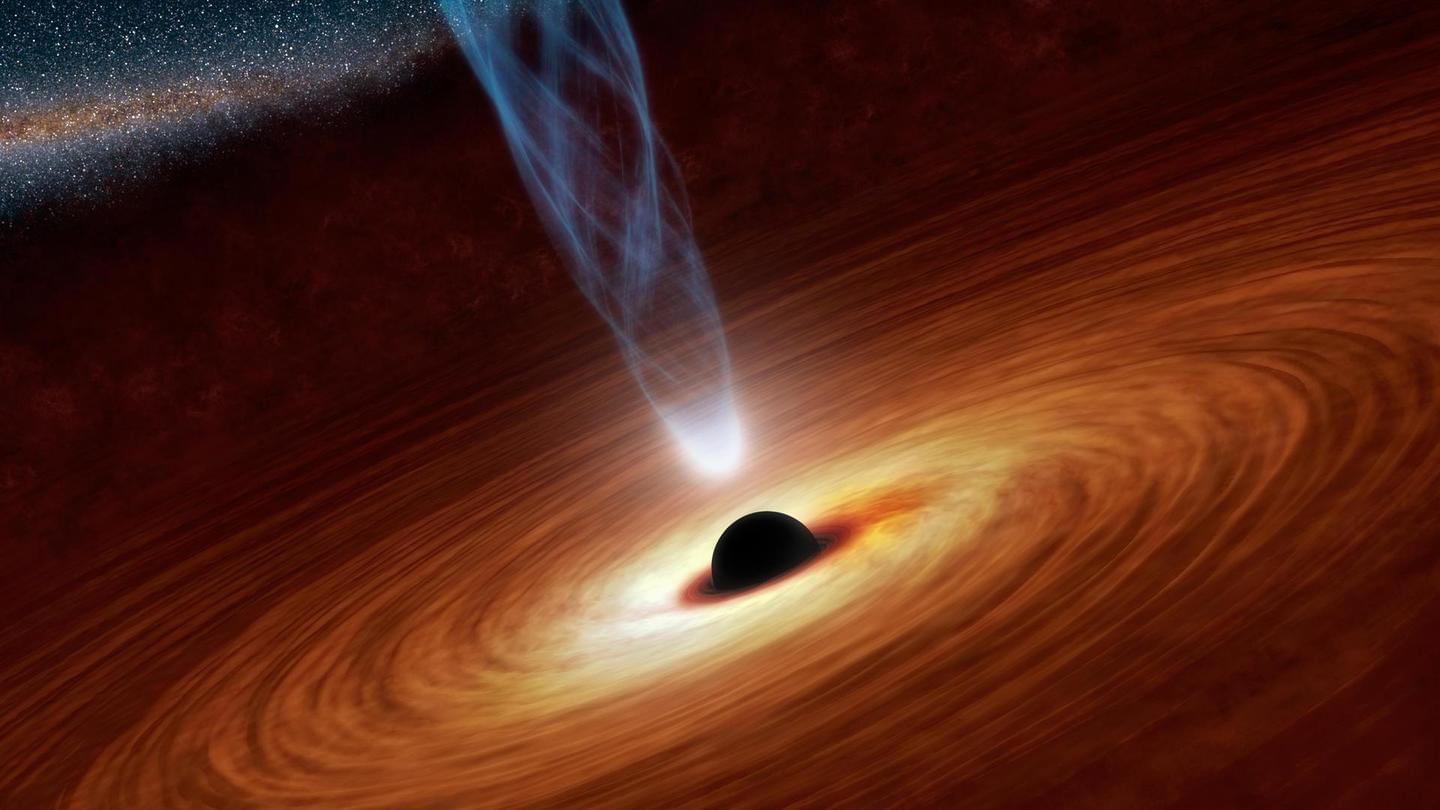Instead of a tempest in a teapot, imagine the cosmos in a canister. Scientists have performed experiments using nested, spinning cylinders to confirm that an uneven wobble in a ring of electrically conductive fluid like liquid metal or plasma causes particles on the inside of the ring to drift inward. Since revolving rings of plasma also occur around stars and black holes, these new findings imply that the wobbles can cause matter in those rings to fall toward the central mass and form planets.
The scientists found that the wobble could grow in a new, unexpected way. Researchers already knew that wobbles could grow from the interaction between plasma and magnetic fields in a gravitational field. But these new results show that wobbles can more easily arise in a region between two jets of fluid with different velocities, an area known as a free shear layer.
“This finding shows that the wobble might occur more often throughout the universe than we expected, potentially being responsible for the formation of more solar systems than once thought,” said Yin Wang, a staff research physicist at the U.S. Department of Energy’s (DOE) Princeton Plasma Physics Laboratory (PPPL) and lead author of the paper reporting the results in Physical Review Letters. “It’s an important insight into the formation of planets throughout the cosmos.”
